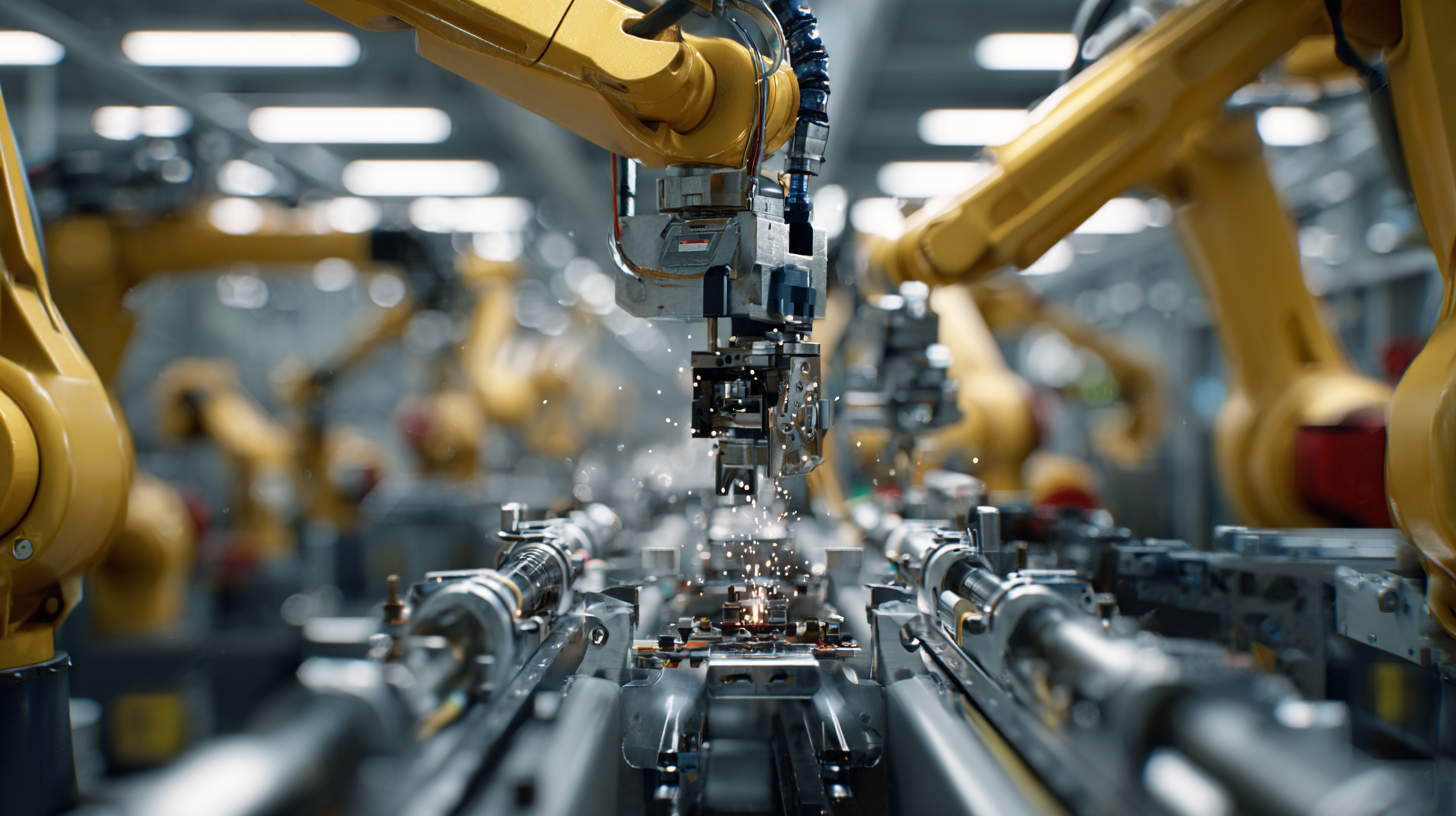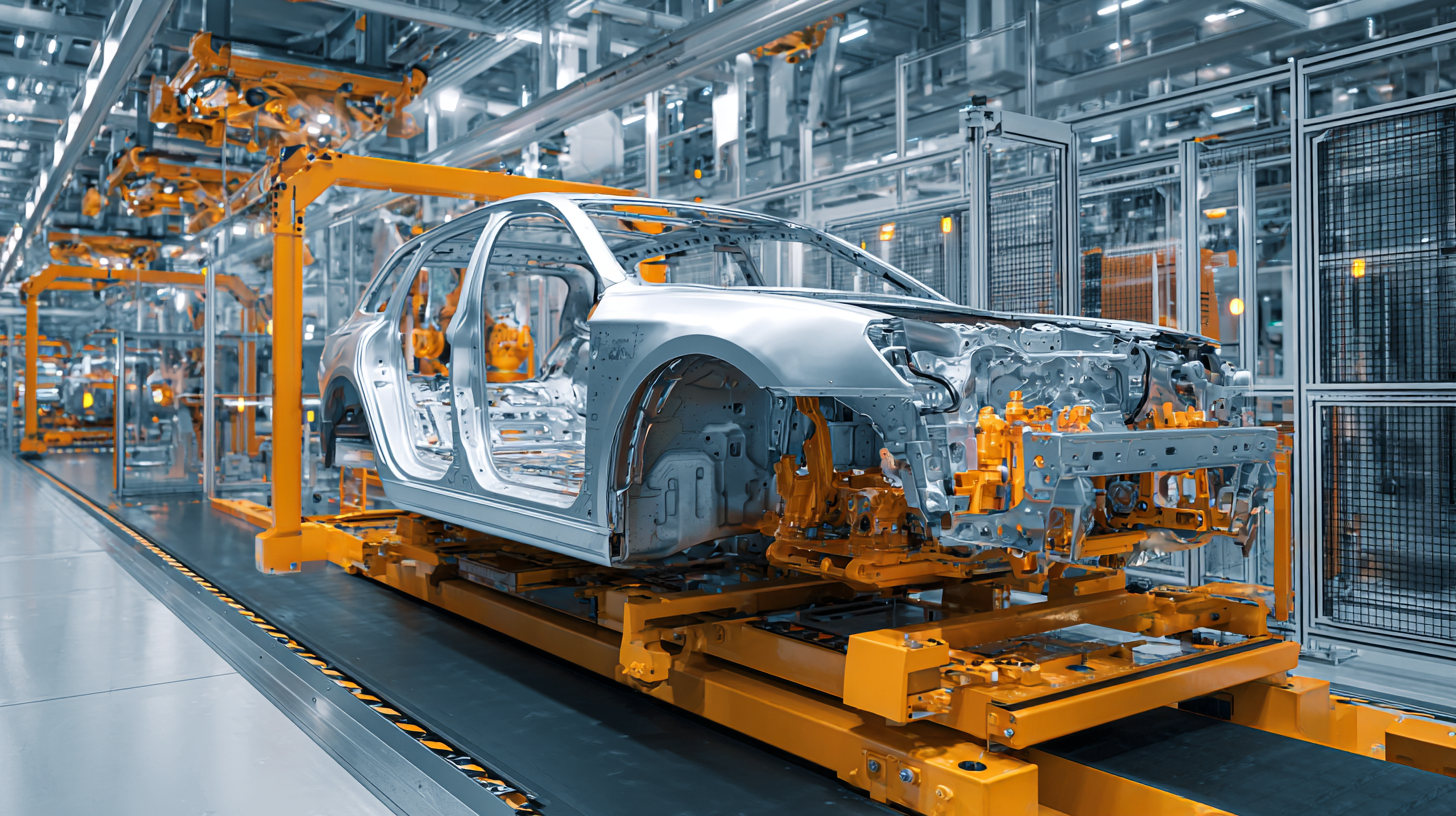Maximizing Efficiency with Best Parts For Machine in Automotive Manufacturing Processes
In the fast-evolving landscape of automotive manufacturing, the integration of high-quality "Parts For Machine" is pivotal for maximizing efficiency and enhancing productivity. According to a recent report by Deloitte, the global automotive manufacturing sector is projected to reach $7.7 trillion by 2028, underscoring the critical need for manufacturers to adopt superior components that drive operational excellence. The demand for precision-engineered parts has surged, as industry leaders recognize that investing in advanced machinery and high-performance components not only reduces downtime but also streamlines production processes.

China's world-class factories have emerged as significant players in this domain, offering exceptional manufacturing capabilities that cater to the rigorous standards of the automotive industry. As manufacturers strive to maintain competitiveness, the selection of the best parts is no longer just a choice; it’s a necessity for staying ahead in a rapidly transforming market.
Identifying Key Components for Enhanced Automotive Production Efficiency
In the fast-paced world of automotive manufacturing, enhancing production efficiency is paramount. To achieve this, identifying key components that contribute to streamlined operations is essential. These components include advanced automation systems, quality control mechanisms, and efficient supply chain logistics. By integrating cutting-edge technologies such as robotics and AI-driven analytics, manufacturers can optimize their processes, reduce lead times, and significantly lower production costs.
Moreover, focusing on the selection of high-quality materials and parts is crucial. Components like lightweight alloys and high-performance polymers not only improve the overall vehicle quality but also enhance fuel efficiency and sustainability. Implementing just-in-time inventory systems ensures that these materials are always available when needed, minimizing waste and maximizing throughput. Ultimately, the combination of the right parts and strategic process enhancements will lead to a more agile and competitive automotive manufacturing environment.

The Role of Quality Parts in Elevating Manufacturing Standards
In the automotive manufacturing sector, the importance of utilizing high-quality parts cannot be overstated. A recent study by the International Journal of Automotive Technology highlights that the use of superior components can increase assembly efficiency by up to 25%. These quality parts not only lead to better performance but also enhance the durability of the final product. This is particularly crucial in an industry where consumer safety and satisfaction are paramount.

Furthermore, a report from the Automotive Industry Action Group (AIAG) indicates that the cost of poor quality, including warranty claims and recalls, can exceed $22 billion annually in the U.S. automotive industry. By prioritizing quality over cost-cutting measures in part selection, manufacturers can significantly reduce these expenses, fostering a more resilient production line. Implementing rigorous quality control measures and sourcing the best parts can thus elevate manufacturing standards and contribute to a more sustainable business model.
In this competitive landscape, investing in quality is not just a choice; it's a necessity for long-term success.
Integrating Innovative Technologies to Optimize Machine Performance
In today's competitive automotive manufacturing landscape, integrating innovative technologies has become crucial for optimizing machine performance. According to a 2023 report by McKinsey & Company, automakers that adopt advanced technologies such as IoT and AI can enhance production efficiency by up to 30%. These technologies allow for real-time monitoring of machine health and performance, enabling manufacturers to make more informed decisions and reduce downtime significantly.
Moreover, the incorporation of automation in manufacturing processes has proven to provide substantial benefits. A study by PwC highlighted that organizations utilizing robotics in their production lines reported a 25% decrease in operational costs and increased throughput. By employing smart sensors and data analytics, manufacturers can identify inefficiencies in the production cycle and adapt their workflows to ensure optimal performance. This data-driven approach not only maximizes the lifespan of machinery by preventing unnecessary wear and tear but also leads to more sustainable manufacturing practices, aligning with industry goals for reduced environmental impact.
Best Practices for Sourcing Reliable Automotive Components
When it comes to automotive manufacturing processes, sourcing reliable components is crucial for maximizing efficiency and ensuring product quality. One key practice is establishing strong relationships with trusted suppliers. By nurturing these connections, manufacturers can gain access to high-quality parts and benefit from consistent supply. This partnership can also facilitate smoother communication, allowing for quicker response times to any potential issues or changes in production needs.
Tip: Regularly evaluate your suppliers by assessing their delivery reliability, quality control measures, and responsiveness. This will help you identify the most dependable partners and ensure that you are receiving the best components for your manufacturing processes.
Another best practice is to implement a thorough vetting process for new suppliers. This includes reviewing their certifications, production capabilities, and past performance. Additionally, consider collaborating with suppliers who engage in continuous improvement practices, as they are more likely to provide innovative solutions and enhance your manufacturing efficiency.
Tip: Create a checklist for evaluating potential suppliers that includes criteria such as compliance with industry standards, financial stability, and previous client testimonials. This structured approach will streamline the sourcing process and help you make informed decisions.
Maximizing Efficiency with Best Parts For Machine in Automotive Manufacturing Processes
| Component Type | Material | Supplier Reliability Rating | Lead Time (weeks) | Cost per Unit ($) |
|---|---|---|---|---|
| Engine Block | Aluminum Alloy | 4.5/5 | 6 | 250 |
| Transmission | Steel | 4.7/5 | 8 | 600 |
| Brake System | Carbon Composite | 4.6/5 | 4 | 180 |
| Suspension | Aluminum Alloy | 4.8/5 | 5 | 300 |
| Fuel Injector | Plastic & Metal | 4.4/5 | 3 | 50 |
Case Studies: Successful Implementation of Quality Parts in Manufacturing
In the automotive manufacturing sector, the importance of utilizing high-quality parts cannot be overstated. Case studies have shown that successful implementation of quality parts leads to significant improvements in efficiency and product quality. For instance, manufacturers that have integrated AI-driven analytics into their processes have seen reduced costs and enhanced output. This showcases the potential of marrying modern technologies with quality components for optimal performance.
Tips for enhancing manufacturing processes include investing in digital infrastructure, as demonstrated in various case studies. Adopting machine learning techniques alongside traditional practices has proven valuable in identifying defects and driving continuous improvement. Additionally, implementing lean manufacturing principles like 5S can significantly streamline operations, reducing waste and increasing overall efficiency. By focusing on these strategies, manufacturers can position themselves to better meet the demands of the automotive industry while ensuring high standards of quality.
